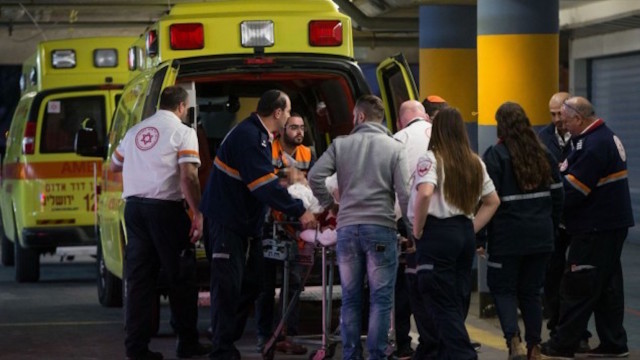
Israel and the West Bank
Ongoing unrest and violence against Israelis that began last September continued into mid-February. The IDF has recorded 121 stabbings, 43 shootings, 24 car rammings since the uprising began.
February 14th was one of the bloodiest days for Palestinian terrorists in recent months. According to Israeli security services, five Palestinians were killed in four separate incidents as they tried to attack Israelis. At one point, two men died after opening fire with automatic weapons on IDF troops near the Damascus Gate in Jerusalem.
The Israeli army closed off the West Bank village of Nahalin, near Bethlehem, for nearly a week following reports of a Palestinian man entering the town after a stabbing in a nearby settlement. Soldiers set up roadblocks to search vehicles entering and exiting the village, conducted night patrols, and raided suspicious buildings.
Palestinian authorities claimed 28 people had been shot during a confrontation with Israeli soldiers near the West Bank Camp of al-Amari. Palestinian officials said that the Israelis were trying to arrest a Fatah party official, but the Israeli army refused to elaborate on “operational activity” in the area, where rioters threw stones and homemade explosives.
Gaza
A tunnel collapsed in Gaza under Khan Younis, on February 9th, killing a Hamas operative. According to media reports its was the fourth such tunnel collapse in recent weeks, which have, in total, claimed the the lives of more than 11 Hamas members.
After being detained in January 2015, the Hamas-run judiciary in Gaza executed Mahmoud Eshtewi, a former member of the group’s military wing, for “moral and behavioral violations.”
Hamas is blocking a UN employee from leaving Gaza, according to a recent Associated Press report. In seeking to exert influence of the international organization, Mahmoud Daher, the Palestinian head of the World Health Organization (WHO) Gaza office, was prevented from leaving the country for Israel. Officials from the terrorist group say officials with the UN are no longer exempt from having to obtain an exit permit before leaving.
A Red Cross facility in Gaza reopened on February 8th, a day after rioters tried to storm the facility. Officials from the NGO said they were in talks with Hamas security forces to restore security to the building. Demonstrators had gathered outside the Red Cross’s office reportedly in solidarity with a Palestinian hunger striker held in Israeli prison.
Sinai
Egyptian President Abul Fattah al-Sisi signed a decree to open the Rafah crossing point with Gaza for three days. During the humanitarian opening, nearly 2,500 people left the enclave, according to the Hamas-run interior ministry in Gaza. Egyptian authorities rarely open the crossing due to security concerns.
One Egyptian army officer and one soldier were killed as they tried to defuse a roadside bomb on February 13th. The military announced the deaths but reports did not include any other details about the incident.
Lebanon
Israeli officials believe that Hezbollah has acquired advanced radar systems that would allow them to identify and “lock on” to Israel aircraft, according to officials cited in the Hebrew online daily Walla! News. Paired with the Russian-made SA-5 anti-aircraft system, the systems would enable the terrorist organization to shoot down Israeli surveillance and support airplanes.





